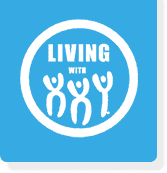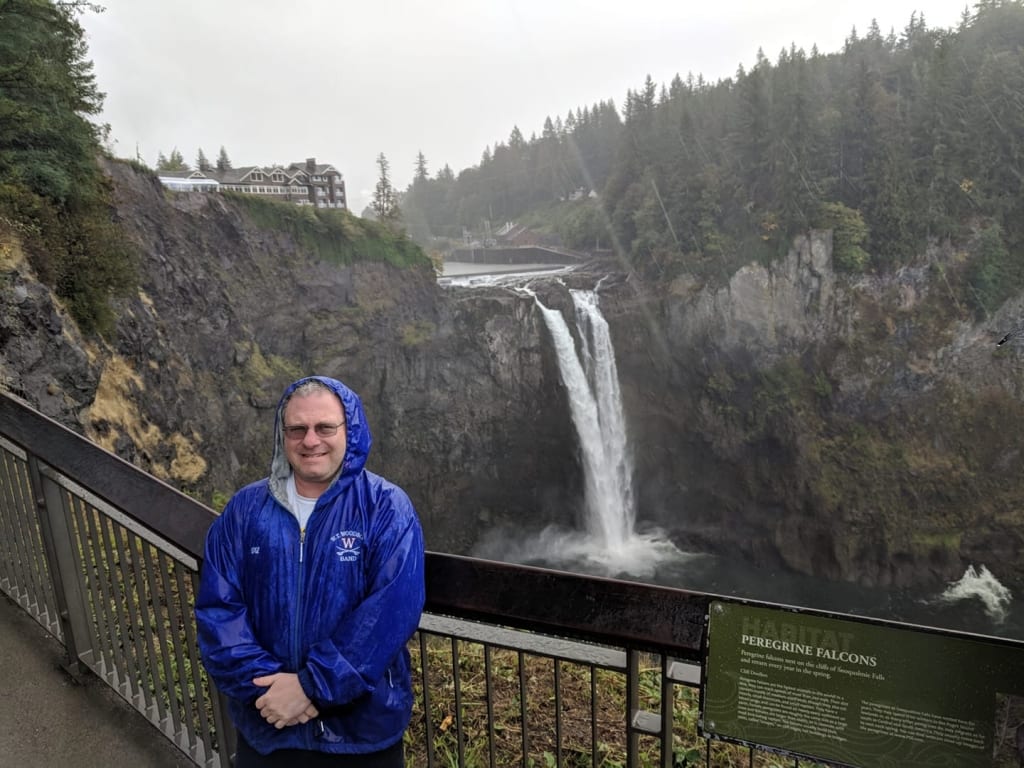My ![]()
![]()
Initially, my parents didn’t want me to tell people, but that lasted a week. I still needed support and frankly, the condition is not something I am ashamed of. I have it and there are way worse things in life.
Putting a name to a condition was finally the answer to many of my lifelong struggles. It put a face on my experiences that had a significant effect on my life. I was very immature, had few friends and I tended to hold on to my friends even past the time when our friendship deteriorated.
With reading comprehension issues, auditory processing, very poor standardized testing, word retrieval, some slight memory retrieval, and no concentration. I graduated high school, with a 2.02 GPA. Though I was frequently called stupid by my teachers and other peers throughout elementary, middle and high school, I wasn’t a dumb kid, I was smart in my own way and I have found that a lot of it was that way because of how I was taught. Looking back the teachers just didn’t know what to do for me or how to help me to be successful.
![]() I went to a local community college near my parents’ home in Baltimore. Looking at my learning differences and realizing it was just part of life. Figuring out my compensation strategies to focus on my positives and strengths is what I did. My strengths work well for me, but may not work for everyone as they truly are individual-based. For me, I focus on HANDS-ON LEARNING, REPETITION, AND VISUALIZATION. If I can see it, I can do it. If I’m shown something once, I can then do it again. Reading and re-reading a passage of text three times allows me to fully understand it and retain it for the future.
I went to a local community college near my parents’ home in Baltimore. Looking at my learning differences and realizing it was just part of life. Figuring out my compensation strategies to focus on my positives and strengths is what I did. My strengths work well for me, but may not work for everyone as they truly are individual-based. For me, I focus on HANDS-ON LEARNING, REPETITION, AND VISUALIZATION. If I can see it, I can do it. If I’m shown something once, I can then do it again. Reading and re-reading a passage of text three times allows me to fully understand it and retain it for the future.
After graduating from the community college, while working part-time throughout, I earned an Associates’s degree in Business Administration. I then transferred to Colby-Sawyer College, in New London, New Hampshire, and earned dual Bachelor of Science degrees in undergraduate and had started taking graduate classes in Counseling Psychology all before I had my Klinefelter Diagnosis.
I achieved honors in several semesters and missed graduating cum laude by 1/100 of a point. Colby-Sawyer College was my first experience being almost completely on my own, and roughly 500 miles away from home. It was a truly great experience —learning, socially, growing up, making new friends, and really living my life.
Life wasn’t easy before my Klinefelter diagnosis. I certainly battled socially, educationally, and behavior, especially my anger which tended to boil up inside of me. I exploded with harsh words towards people I loved and cared about. My parents took me to many psychologists and psychiatrists, and medical professionals in the Baltimore area, home of Johns Hopkins Hospital, and no one thought of genetic testing before my Klinefelter diagnosis actually occurred. Life after receiving my Klinefelter diagnosis was initially one where I was angry.
Becoming frustrated and confused as to why it took so long for it to happen. I was angry at the world for a week or two because I was wondering, why me?!? I was engaged at the time of my Klinefelter diagnosis. We had been together for three years and we were planning to have children and a family and be together forever. But based on past friendships, as I’ve already mentioned, I continued it to try and make things work even though I had received this Klinefelter diagnosis. Eventually, we broke up and moved on.
Gradually after the first couple of weeks, I began to accept the Klinefelter diagnosis. and started taking testosterone about a month after. I scheduled an appointment at Johns Hopkins with an endocrinologist. She was extremely thorough and explained all about the Klinefelter diagnosis and limited treatment methods.
We decided together to start on the Androderm patches. Patches that delivered 7.5 mg of testosterone over the course of 24 hours. However, the patches were huge and you needed two of them. My body did not react well to the patches. I got daily rashes, skin irritation, wax-like effects when removing the patches. I quickly learned this method of testosterone delivery was not going to work for me and consulted my endocrinologist. A few days later I returned to her office and her nurse taught me how to self-inject testosterone. For more than 22 years I have been self-injecting.
After my Klinefelter diagnosis and starting on testosterone therapy, my life quickly started to take shape. I was jumping out of my introverted shell that had gotten me through much of the first 26 years of my life. I moved to Burlington, Massachusetts the beginning of July 1996. Where I started work just before attending my first national Klinefelter Syndrome conference in Bellevue, Washington. It was there that I had my first awakening and being in a support group room with 40 adult men who had the same condition as I did. Many of the men were diagnosed later in life as I was and we shared many things in common.
![]()
![]()
![]()
![]()
My sweet dog and I live together now and she is the best roommate. I have certainly reflected back on my life since my Klinefelter diagnosis and throughout my marriage.
I am still working as a software test engineer. My career has now spanned 22 years in the same field. I now primarily work as a government contractor. Having taught myself everything about computers I know with very few online courses, I received my Bachelor’s degrees in Business Administration and Sports Management.
Since my Klinefelter diagnosis, I have helped to start more than a dozen regional support groups, about a half dozen internationally. I have been an intricate part of both KS&A as a regional director/coordinator, support group leader, conference coordinator, and part of AAKSIS as a founding board member.
![]()
![]()
Doctors and geneticists were and still are giving out old, scary, and incorrect information. This is certainly not generally a condition for which one should consider terminating a pregnancy because it can be mild and manageable.
Someone recently told me that this diagnosis has made life matter for them. That they are now able to see a meaningful purpose for their life to be lived and to help others with this condition not feel alone and help them move forward. I feel the same way, its why I got involved as quickly as I did. I decided to give back, help others, and help as many people as possible who live with Klinefelter Syndrome/XXY.
I am happy Ryan and I are friends and he has this amazing website and is helping bring people together. And looking forward to working with him and supporting his efforts along with the others who have joined up to help and make the community larger and stronger than ever before.
I hope this has given you a little aspect into who I am and my Klinefelter diagnosis. If you have any questions or if I can be of some help to you and/or your family, please don’t hesitate to contact me.



